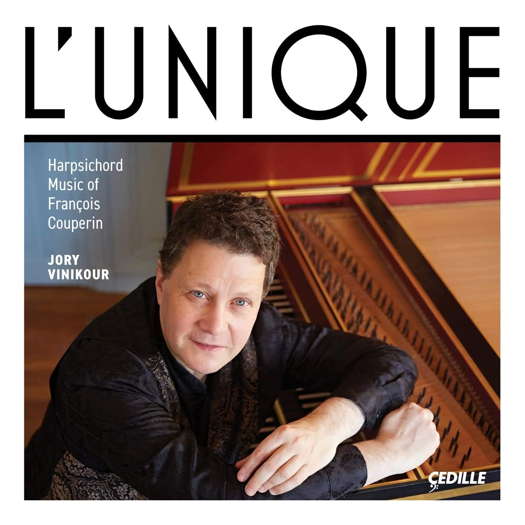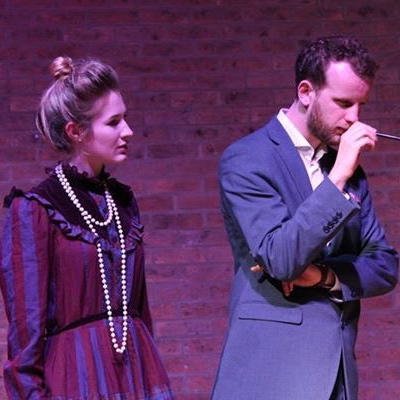 DISCUSSION: John Dante Prevedini leads a discussion about Improvisation in the classical world and beyond, including contributions from David Arditti, James Lewitzke, James Ross and Steve Vasta.
DISCUSSION: John Dante Prevedini leads a discussion about Improvisation in the classical world and beyond, including contributions from David Arditti, James Lewitzke, James Ross and Steve Vasta.

The Sweetness of Life
GIUSEPPE PENNISI listens to harpsichord music by François Couperin
'... the key note is B flat major which at the time was an experimental, almost avant-garde tonality. Jory Vinikour shows it very well and demonstrates how Couperin was ahead of many other harpsichordists.'
Charles-Maurice de Talleyrand-Périgord, who served several Kings, Revolutionary Chiefs, Prime Ministers and even the Emperor Napoléon, used to say: 'Unless you lived before the (French) Revolution, you couldn't taste the sweetness of life'. François Couperin lived well before the Revolution, at the time of King Louis XIV and Louis XV. This CD documents that he could taste the sweetness of life very well. The CD has a booklet with very useful musical information but very little data on the musician and the context where he worked.
François Couperin was born into a prominent musical family. His father Charles was organist at the Church of Saint-Gervais in Paris, a position previously held by Charles's brother Louis Couperin, the esteemed keyboard virtuoso and composer whose career was cut short by an early death. As a boy, François must have received his first music lessons from his father, but Charles died in 1679. The church council at Saint-Gervais hired Michel Richard Delalande to serve as new organist on the understanding that François would replace him at age eighteen.
At twenty-one Couperin also lost his mother, Marie, but otherwise his life and career were accompanied by good fortune. In 1689 he married one Marie-Anne Ansault, daughter of a prosperous family. The next year saw the publication of his Pièces d'orgue, a collection of organ masses praised by Delalande, who may have assisted with the project. In three more years, Couperin was appointed as a musician at Louis XIV's Court. The appointment brought him in touch with some of the finest composers of the day as well as with the aristocracy. His earliest chamber music dates from this time. Couperin met his Court duties in tandem with those he now had as organist at Saint-Gervais, while also composing.
He obtained a twenty-year royal privilege to publish in 1713 and used it immediately to issue the first volume (out of four) of his harpsichord works, Pièces de clavecin. A harpsichord playing manual followed in 1716, as well as other collections of keyboard and chamber music. In 1717 Couperin succeeded one of his most eminent colleagues, Jean-Henri d'Anglebert, as ordinaire de la musique de la chambre du roi pour le clavecin, one of the highest possible appointments for a court musician. However, his involvement in the musical activities at the court may have lessened after Louis XIV's death in 1715.
Couperin's health declined steadily throughout the 1720s. In 1730 Couperin's position as Court Harpsichordist was filled by his daughter Marguerite-Antoinette. Couperin's final publications were Pièces de violes (1728) and the fourth volume of harpsichord pieces (1730). The composer died in 1733. The building where Couperin and his family lived since 1724 still stands and is located at the corner of the rue Radziwill and the rue des Petits-Champs in Paris.
This CD is issued by the Cedille Producers Circle. It includes three Ordres (books) of François Couperin's harpsichord works, namely numbers 6, 7 and 8 - in short an anthology of his maturity. They are played by Jory Vinikour, a Chicago-born musician with a highly diversified career and recognized as one of the top harpsichordists of this time.
Each Ordre has a series (eight to ten) of very short scenes - about two to three minutes each. Mostly they depict a serene, sweet bucolic environment such as those that were performed in the rustic village of Versailles. Of course, real life in the farming sector was quite different than that painted by the aristocrat at the Versailles Court: hard, taxing, with diseases and short life expectancy. Like in many other Italian, Austrian and German works of the time, the setting was conceived for the aristocracy to play as gentle farmers. Consequently, the CD recalls the sweetness of Court life when the aristocrats enjoyed pretending to belong to a different social class in an imaginary Arcadia.
This is especially felt in Ordre No 6 where each number is a little Arcadian scene. In Les Moissonneurs and Les Bergeries, Couperin depicts the joyous Île de France with happy peasants and animals of Brie. Interestingly, the key note is B flat major which at the time was an experimental, almost avant-garde tonality. Jory Vinikour shows it very well and demonstrates how Couperin was ahead of many other harpsichordists.
Listen — François Couperin: Les Moissonneurs (Sixième ordre)
(track 1, 0:29-0:58) © 2020 Cedille Records :
Listen — François Couperin: Les Bergeries (Sixième ordre)
(track 6, 0:50-1:38) © 2020 Cedille Records :
Ordre No 7 has a different topic: growing up from birth to (nearly) adulthood. Here the dominant note is G; in five of the pieces, G major and G minor alternate. Childhood, adolescence and coming to age are not seeing, of course, as they would be in Romantic music when growing up would be a frequent topic. They are a gentle process without any trouble, as one can hear in L'Enfantine and in L'Adolescente.
Listen — François Couperin: L'Enfantine (Septième ordre)
(track 11, 0:40-1:13) © 2020 Cedille Records :
Listen — François Couperin: L'Adolescente (Septième ordre)
(track 12, 0:32-1:05) © 2020 Cedille Records :
Ordre No 8, the longest, has as many as ten different numbers. They are all in B minor and depict life at Court, mostly dances. All very elegant, including a Gavotte, a Rondeau and a Passacaille.
Listen — François Couperin: Rondeau (Huitième ordre)
(track 23, 0:00-0:17) © 2020 Cedille Records :
Listen — François Couperin: Passacaille (Huitième ordre)
(track 26, 4:33-5:32) © 2020 Cedille Records :
In short, this a good CD to re-evoke the sweetness of life before the Revolution.
Copyright © 25 September 2020
Giuseppe Pennisi,
Rome, Italy

CD INFORMATION: L'UNIQUE - FRANÇOIS COUPERIN HARPSICHORD MUSIC
FURTHER INFORMATION: FRANÇOIS COUPERIN
FURTHER INFORMATION: CEDILLE RECORDS
FURTHER ARTICLES ABOUT HARPSICHORD MUSIC
FURTHER ARTICLES ABOUT SEVENTEENTH CENTURY MUSIC
FURTHER ARTICLES ABOUT EIGHTEENTH CENTURY MUSIC



